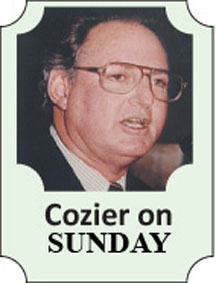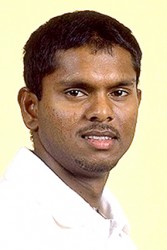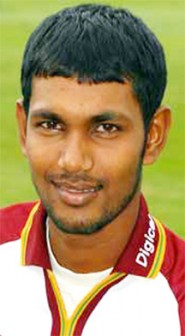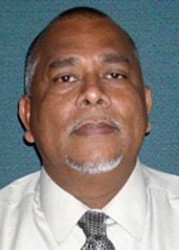THE late, renowned British sports columnist Ian Wooldridge once told me he was perplexed by how a group of separate, miniscule former British colonies scattered across hundreds of miles of water, from Guyana on the South American mainland to Jamaica in the northern Caribbean, could produce such a profusion of great players to unite into such powerful teams.
He described it as “one of the wonders of the sporting world”. It was a widely shared sentiment.
That was many years ago when the legacy of George Headley, Garry Sobers and a host of similar greats was still strong and teams led by Clive Lloyd and Viv Richards had gone 15 years without losing a Test series.
Even then, there was always the insularity inevitably created by the unique structure of the West Indies Cricket Board (WICB) that has managed the regional game since its formation in 1927. Its decisions are made by a directorate of 14, two from each affiliate board along with the president and the vice-president.
The long period at the top of the world game has been followed by a stunning decline, caused principally by internal strife within the WICB and bickering between the board and its players.
 It is not difficult to imagine what Wooldrige and those once who held West Indies cricket in such awe would make of affiliate boards chastising selectors and others it blames for undermining their own players and the need to call in presidents and prime ministers to settle complex issues.
It is not difficult to imagine what Wooldrige and those once who held West Indies cricket in such awe would make of affiliate boards chastising selectors and others it blames for undermining their own players and the need to call in presidents and prime ministers to settle complex issues.
The official reactions to the omission of Shivnarine Chanderpaul from the Test team last June that effectively ended his illustrious career and the more recent removal of Denesh Ramdin as Test captain are the latest in a string of examples that typify the problem.
In the Chanderpaul case, the Guyana Cricket Board (GCB) was scathing in its public condemnation of the selection panel that it had presumably endorsed.
Its president and its executive “strongly denounce the ridiculous and senseless policies and decisions of the Clive Lloyd-led selection panel” it declared. The reference to Lloyd, an iconic West Indies captain and a Guyanese, was obviously not unintentional.
“Our board cannot believe or even fathom the thought process behind the wanton dropping of the most senior, reliable and dependable West Indies batsman for the past 21 years,” it protested.
When Chanderpaul was omitted from the ODI team following the 2011 World Cup, the president of Guyana paraded around the National Stadium during a match with a placard that read: “WICB, a disgrace”. Apparently, it was deemed worth the political capital.
In the Ramdin case, the response of Trinidad and Tobago Cricket Board (TTCB) president Azim Bassarath mirrored the GCB’s. The difference was that there was a twist to the story.



Bassarath was, he said, “very, very disappointed”. He believed Ramdin should have been given the chance of leading the West Indies on its upcoming tour of Sri Lanka. All well and good for it was a view shared by others, not only Trinidadians.
He then followed a well-worn path, raising the spectre of Trinidadian players being “specially targeted because of their alleged role” in the premature withdrawal of the West Indies team from last year’s tour of India when Trinidadian Dwayne Bravo was captain and, according to Bassarath, “some Trinis were leading the charge”.
He hoped WICB president Dave Cameron was not part of a move to “spite and victimize” Trinidadian players because of it or because he was not supported in the ballot for the presidency last March by the TTCB – “the best territorial board in the Caribbean” he dubbed it.
“I would not sit down idly by as a WICB director and allow any victimisation and vindictiveness to creep into West Indies cricket,” he thundered.
It was a line that disregarded his board’s decision last November on the leadership of its team, retaining Rayad Emrit as captain for the 2014-15 regional Professional Cricket League (PCL) in preference to Ramdin.
The TCCB explained that it did not appoint Ramdin as it realized he would be on tours of India and South Africa that conflicted with the PCL. It sounded a feasible enough reason except Ramdin sang a different tune.
He had, he claimed in a release to the media, been restricted from attending a practice session with the Trinidad and Tobago team on his return from India, leaving him “hurt and embarrassed”.
He later elaborated that, at a meeting with the TCCB on November 3, he had been told that since he “did not demonstrate proper leadership in relation to the tour of India” he would be relieved of the captaincy and replaced by Emrit.”
He regarded it as “a punishment” that went against an undertaking by the WICB at a meeting in Port-of-Spain on October 31 and was advised that it as a breach of his rights. The task force set up by the WICB to review all aspects of the team’s pull out from India had, he pointed out, “made no findings of misconduct against me”.
While Bassarath was hinting at sinister motives for his dismissal, the 30-year-old wicket-keeper was philosophical over his demotion back into the ranks after 13 Tests at the helm.
He was “a little disappointed” but didn’t intend to let anything stress him out as he was “really happy at this point in my life”.
Ramdin said he had been told by the selectors that, since he wasn’t producing as much with his batting as expected, they had relieved him of the pressure of captaincy. It was a chance to “produce a lot more runs now and perform better behind the stumps”.
There were also mature, encouraging words for Holder. He was “a very good guy to work” with who handled himself “quite nicely” in the ODIs in South Africa and in the World Cup.
That senior players would be able to guide him at Test level would be an advantage.
The GCB and TCCB are by no means the first territorial boards to spring to the defense of the imagined mistreatment of their players. They somehow regard it as their duty; their real responsibility is the revival of West Indies cricket.






